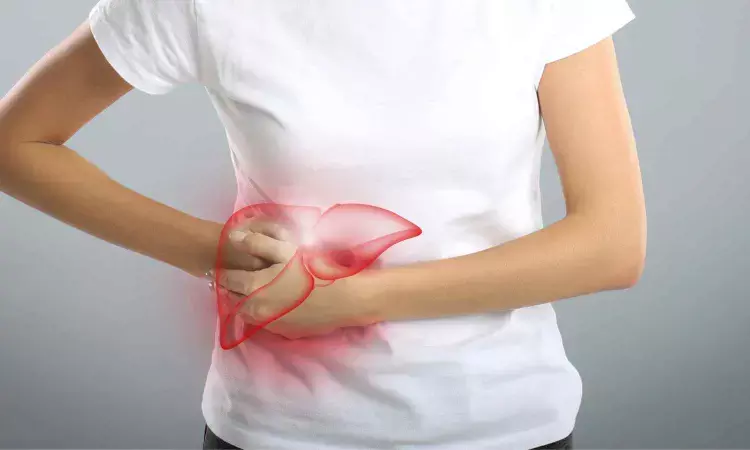- Home
- Medical news & Guidelines
- Anesthesiology
- Cardiology and CTVS
- Critical Care
- Dentistry
- Dermatology
- Diabetes and Endocrinology
- ENT
- Gastroenterology
- Medicine
- Nephrology
- Neurology
- Obstretics-Gynaecology
- Oncology
- Ophthalmology
- Orthopaedics
- Pediatrics-Neonatology
- Psychiatry
- Pulmonology
- Radiology
- Surgery
- Urology
- Laboratory Medicine
- Diet
- Nursing
- Paramedical
- Physiotherapy
- Health news
- Fact Check
- Bone Health Fact Check
- Brain Health Fact Check
- Cancer Related Fact Check
- Child Care Fact Check
- Dental and oral health fact check
- Diabetes and metabolic health fact check
- Diet and Nutrition Fact Check
- Eye and ENT Care Fact Check
- Fitness fact check
- Gut health fact check
- Heart health fact check
- Kidney health fact check
- Medical education fact check
- Men's health fact check
- Respiratory fact check
- Skin and hair care fact check
- Vaccine and Immunization fact check
- Women's health fact check
- AYUSH
- State News
- Andaman and Nicobar Islands
- Andhra Pradesh
- Arunachal Pradesh
- Assam
- Bihar
- Chandigarh
- Chattisgarh
- Dadra and Nagar Haveli
- Daman and Diu
- Delhi
- Goa
- Gujarat
- Haryana
- Himachal Pradesh
- Jammu & Kashmir
- Jharkhand
- Karnataka
- Kerala
- Ladakh
- Lakshadweep
- Madhya Pradesh
- Maharashtra
- Manipur
- Meghalaya
- Mizoram
- Nagaland
- Odisha
- Puducherry
- Punjab
- Rajasthan
- Sikkim
- Tamil Nadu
- Telangana
- Tripura
- Uttar Pradesh
- Uttrakhand
- West Bengal
- Medical Education
- Industry
Cancer immunotherapy linked to rare liver complication, study warns

A global study reveals that cutting-edge cancer immunotherapies, while lifesaving, carry a hidden risk: they may trigger cholestasis, a serious liver condition where bile flow stalls. Analyzing 634 patient reports from global drug-safety databases (FAERS and VigiBase), scientists found immunotherapy patients had a significantly higher risk of cholestasis than chemotherapy recipients. Those under 65 faced greater danger, and women developed symptoms weeks earlier than men (Median 1.17 vs. 1.90 months).
Anti-PD-1 drugs (e.g., pembrolizumab) and combination therapies posed the highest risk. In mice, combined anti-CTLA-4/anti-PD-L1 drugs caused severe bile duct injury. Molecular analysis linked the condition to disrupted bile acid metabolism and inflammation pathways.
“This isn’t about abandoning immunotherapies-they save lives,” stresses senior author Peng Luo, PhD, of Southern Medical University. “But we must monitor liver function aggressively, especially in the first month for women and young adults. Catching cholestasis early prevents irreversible damage.”
Surprisingly, cholestasis often occurred without classic hepatitis symptoms, suggesting routine liver tests alone may miss it. The team urges adding bile acid level checks to standard monitoring.
Reference:
Yan, Xinronga,†; Li, Zhengruib,†; Jiang, Aiminc,†; Chen, Jinghonga,†; Huang, Xufengd,e; Hajdu, Andrásd; Wong, Hank Z.H.f; Cheng, Quang,h,*; Zhang, Jiani,*; Lin, Anqia,*; Luo, Penga,*. Immunotherapy-induced cholestasis in cancer: insights from the two real-world pharmacovigilance databases of FAERS and vigiBase. International Journal of Surgery ():10.1097/JS9.0000000000002607, June 05, 2025. | DOI: 10.1097/JS9.0000000000002607.
Dr Kamal Kant Kohli-MBBS, DTCD- a chest specialist with more than 30 years of practice and a flair for writing clinical articles, Dr Kamal Kant Kohli joined Medical Dialogues as a Chief Editor of Medical News. Besides writing articles, as an editor, he proofreads and verifies all the medical content published on Medical Dialogues including those coming from journals, studies,medical conferences,guidelines etc. Email: drkohli@medicaldialogues.in. Contact no. 011-43720751


